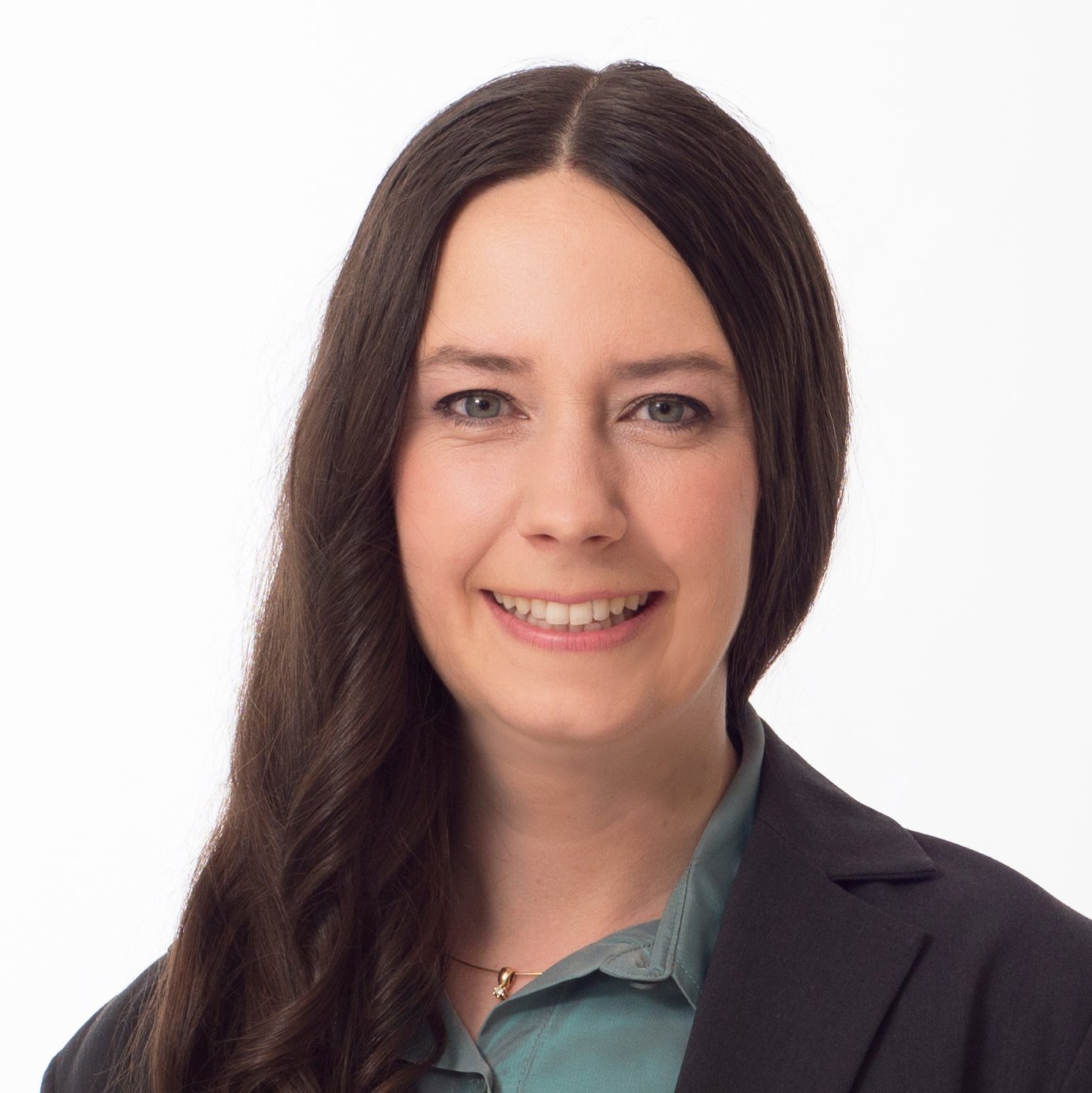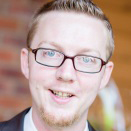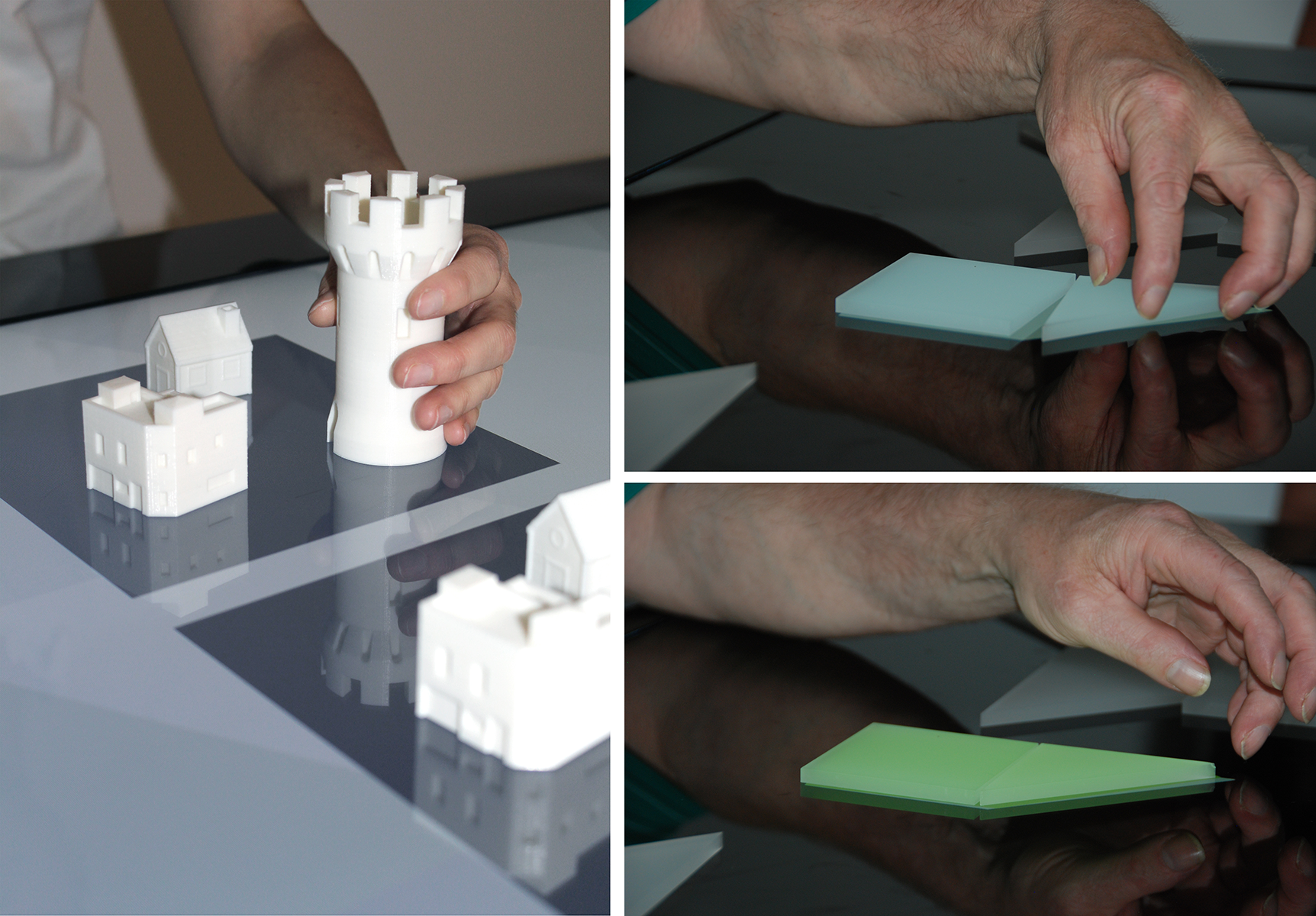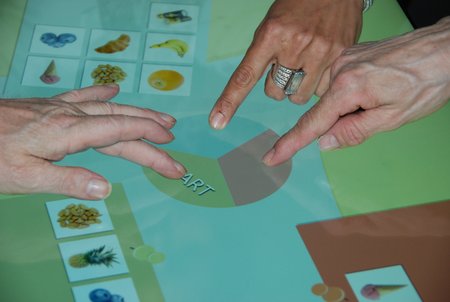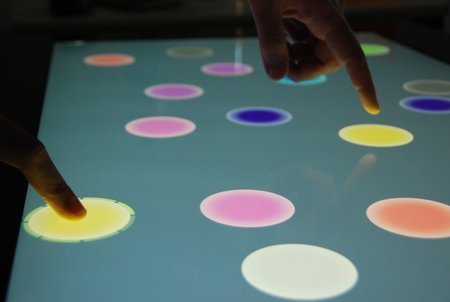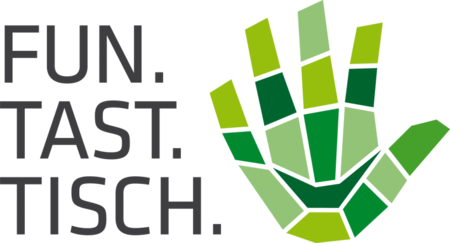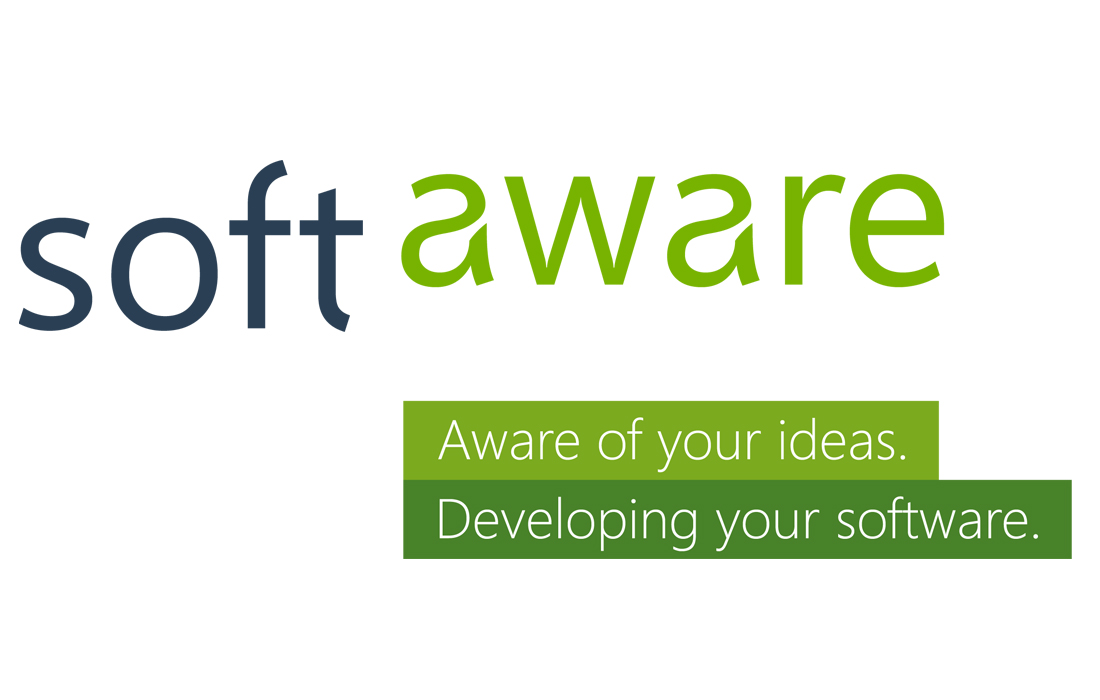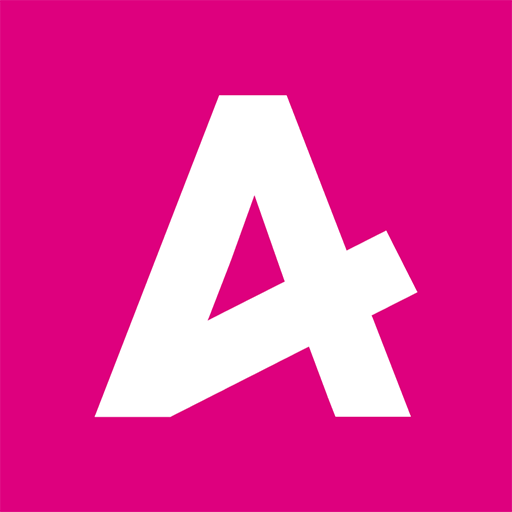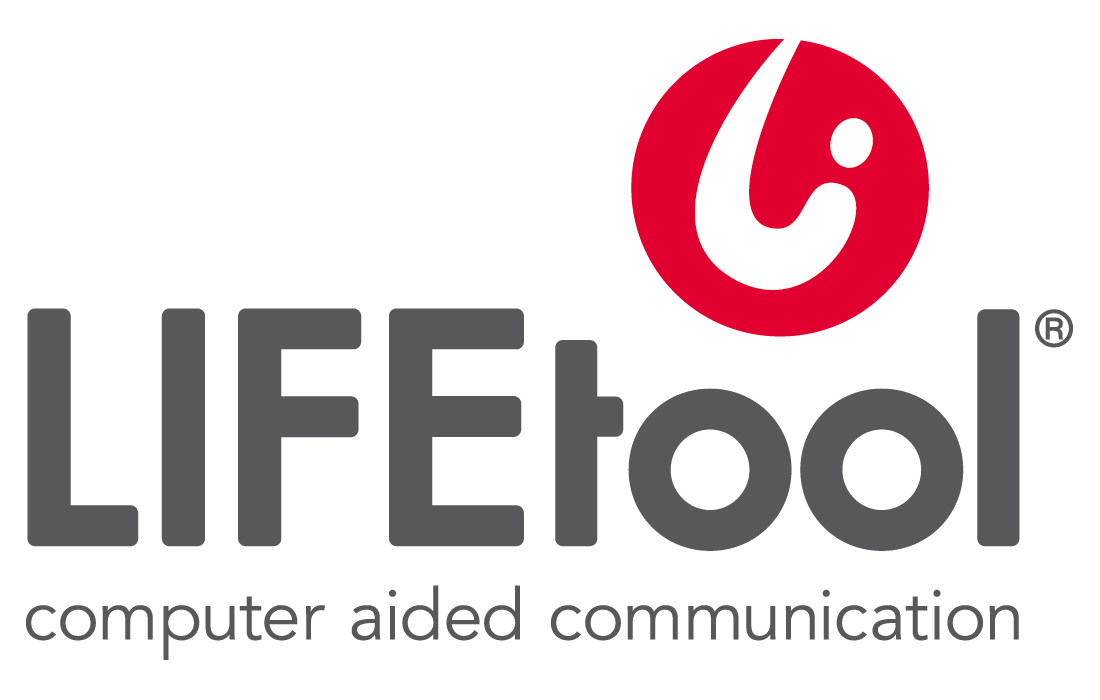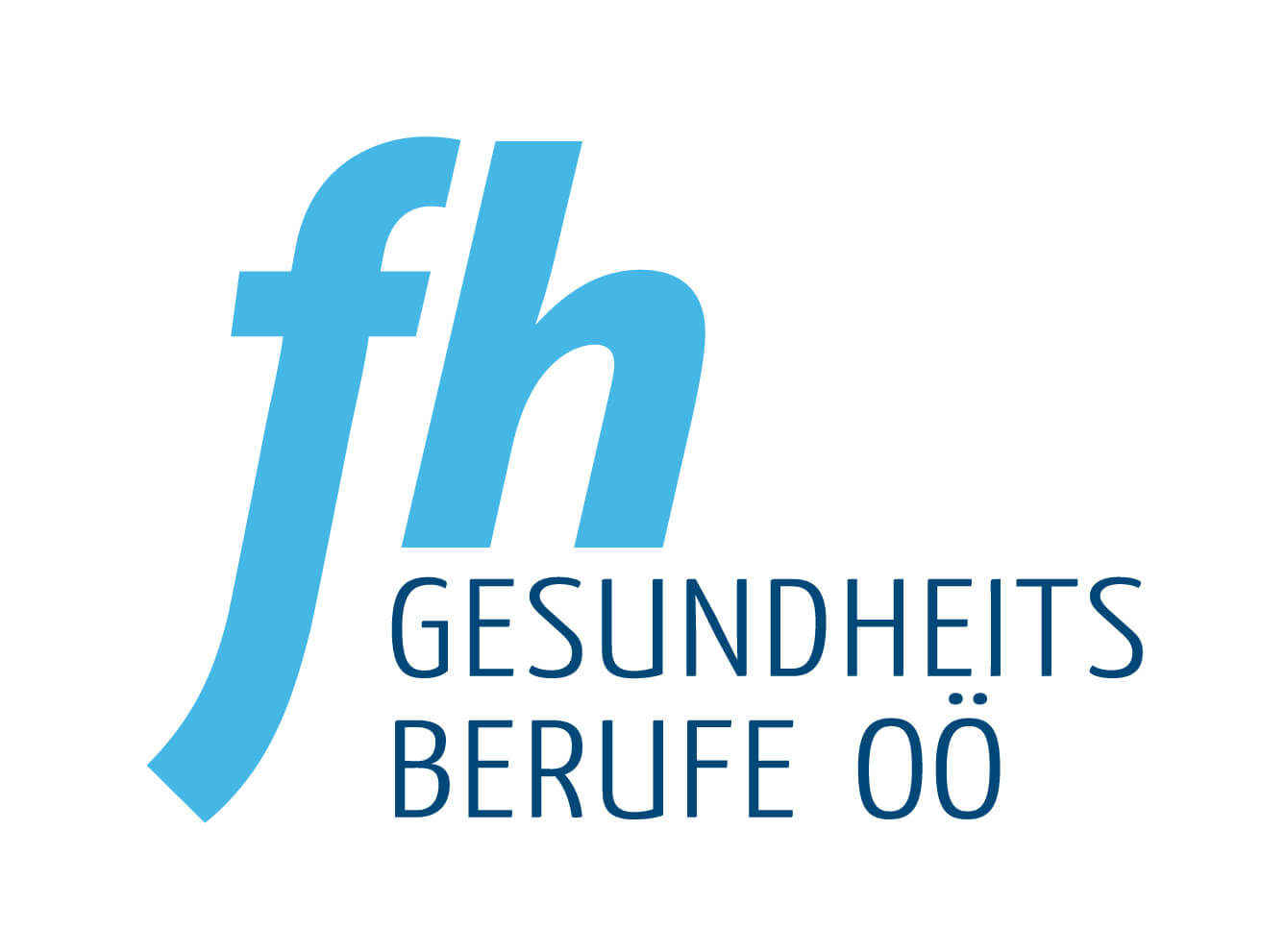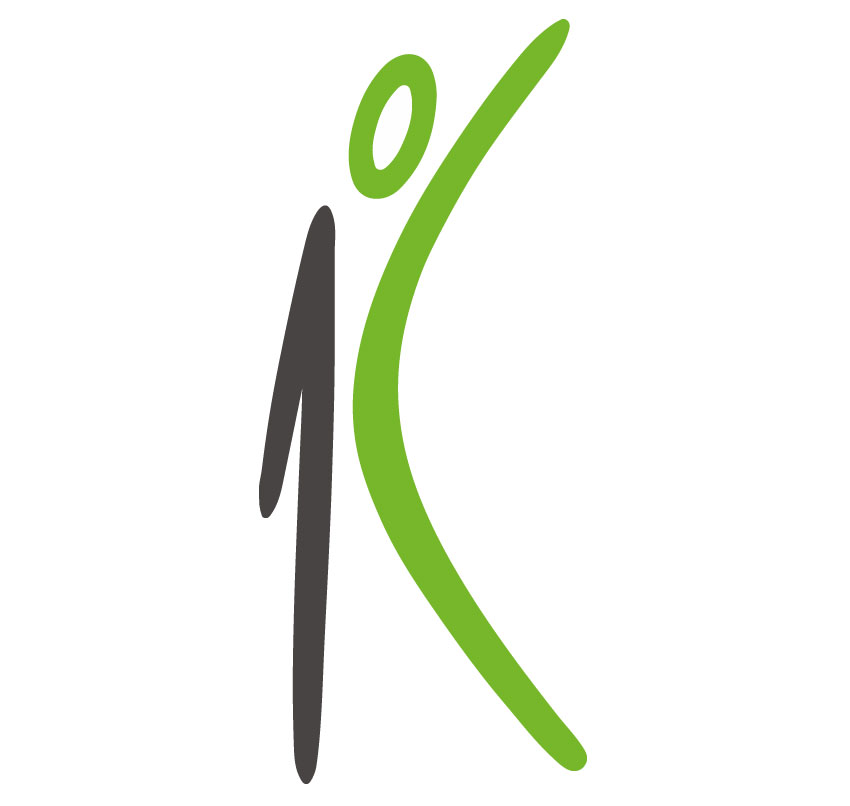array (2 items)settings =>
limit => '0 ' (1 chars)
project => 'author => 'year => '0 ' (1 chars) project => title => protected 'fun.tast.tisch. - Novel evolution to operate the Microsoft Pixelsense in neu ' (93 chars)
startdate => protected DateTime prototype object (2012-10-01T00:00:00+02:00, 1349042400)enddate => protected DateTime prototype object (2014-09-30T00:00:00+02:00, 1412028000)description => protected '<p>In the project fun.tast.tisch. which was led by our cooperation partner L ' (2486 chars)
colorCode => protected '#2B2D42 ' (7 chars)
active => protected FALSE
teaserimage => protected uidLocal => protected 148 (integer)
configurationManager => protected objectManager => protected TYPO3\CMS\Extbase\Object\ObjectManager singleton object filtered concreteConfigurationManager => protected flexFormService => protected TYPO3\CMS\Core\Service\FlexFormService singleton object configuration => protected
userFunc => 'TYPO3\CMS\Extbase\Core\Bootstrap->run ' (37 chars)
extensionName => 'PeecExtension ' (13 chars)
pluginName => 'Peecfe ' (6 chars)
vendorName => 'PEEC ' (4 chars) contentObject => protected TYPO3\CMS\Frontend\ContentObject\ContentObjectRenderer prototype object filtered objectManager => protected TYPO3\CMS\Extbase\Object\ObjectManager singleton object filtered typoScriptService => protected TYPO3\CMS\Core\TypoScript\TypoScriptService prototype object extensionName => protected 'PeecExtension ' (13 chars)
pluginName => protected 'Peecfe ' (6 chars)
configurationCache => protected
peecextension_peecfe =>
persistence => array (4 items)max depth mvc => array (2 items)max depth features => array (4 items)max depth view => array (3 items)max depth userFunc => 'TYPO3\CMS\Extbase\Core\Bootstrap->run ' (37 chars)
extensionName => 'PeecExtension ' (13 chars)
pluginName => 'Peecfe ' (6 chars)
vendorName => 'PEEC ' (4 chars)
controllerConfiguration => array (1 item)max depth settings => array (4 items)max depth environmentService => protected TYPO3\CMS\Extbase\Service\EnvironmentService singleton object environmentService => protected TYPO3\CMS\Extbase\Service\EnvironmentService singleton object see above originalResource => protected NULL
uid => protected 326 (integer)
_localizedUid => protected 326 (integer)modified
_languageUid => protected 0 (integer)modified
_versionedUid => protected 326 (integer)modified
pid => protected 25 (integer)media => protected
00000000327875a0000000002fa74e35 => uidLocal => protected 147 (integer)
configurationManager => protected TYPO3\CMS\Extbase\Configuration\ConfigurationManager singleton object see above originalResource => protected NULL
uid => protected 302 (integer)
_localizedUid => protected 302 (integer)modified
_languageUid => protected 0 (integer)modified
_versionedUid => protected 302 (integer)modified
pid => protected 25 (integer)00000000327875a1000000002fa74e35 => uidLocal => protected 149 (integer)
configurationManager => protected TYPO3\CMS\Extbase\Configuration\ConfigurationManager singleton object see above originalResource => protected NULL
uid => protected 303 (integer)
_localizedUid => protected 303 (integer)modified
_languageUid => protected 0 (integer)modified
_versionedUid => protected 303 (integer)modified
pid => protected 25 (integer)00000000327875a4000000002fa74e35 => uidLocal => protected 214 (integer)
configurationManager => protected TYPO3\CMS\Extbase\Configuration\ConfigurationManager singleton object see above originalResource => protected NULL
uid => protected 327 (integer)
_localizedUid => protected 327 (integer)modified
_languageUid => protected 0 (integer)modified
_versionedUid => protected 327 (integer)modified
pid => protected 25 (integer) member => protected
00000000327875e1000000002fa74e35 => firstnameAbbr => protected 'firstname => protected 'Thomas ' (6 chars)
lastname => protected 'Neumayr ' (7 chars)
academictitle => protected 'Ing. Dr. ' (8 chars)
postacademictitle => protected 'BA MA ' (5 chars)
email => protected 'thomas.neumayr@fh-hagenberg.at ' (30 chars)
phonenumber => protected '+43 5 0804 27183 ' (16 chars)
picture => protected uidLocal => protected 78 (integer)
configurationManager => protected TYPO3\CMS\Extbase\Configuration\ConfigurationManager singleton object see above originalResource => protected NULL
uid => protected 131 (integer)
_localizedUid => protected 131 (integer)modified
_languageUid => protected 0 (integer)modified
_versionedUid => protected 131 (integer)modified
pid => protected 21 (integer)position => protected name => protected 'Senior Researcher ' (17 chars)
uid => protected 2 (integer)
_localizedUid => protected 2 (integer)modified
_languageUid => protected 0 (integer)modified
_versionedUid => protected 2 (integer)modified
pid => protected 24 (integer)education => protected
000000003278750f000000002fa74e35 => name => protected 'Johannes Kepler University Linz ' (31 chars)
subject => protected 'Business Informatics ' (20 chars)
type => protected 'PhD ' (3 chars)
startdate => protected DateTime prototype object (2018-10-01T02:00:00+02:00, 1538352000)enddate => protected NULL
uid => protected 10 (integer)
_localizedUid => protected 10 (integer)modified
_languageUid => protected 0 (integer)modified
_versionedUid => protected 10 (integer)modified
pid => protected 21 (integer)0000000032787516000000002fa74e35 => name => protected 'University of Applied Sciences Hagenberg ' (40 chars)
subject => protected 'Communication and Knowledge Media ' (33 chars)
type => protected 'Master program ' (14 chars)
startdate => protected DateTime prototype object (2010-10-01T02:00:00+02:00, 1285891200)enddate => protected DateTime prototype object (2012-07-01T02:00:00+02:00, 1341100800)uid => protected 11 (integer)
_localizedUid => protected 11 (integer)modified
_languageUid => protected 0 (integer)modified
_versionedUid => protected 11 (integer)modified
pid => protected 21 (integer)0000000032787570000000002fa74e35 => name => protected 'University of Applied Sciences Hagenberg ' (40 chars)
subject => protected 'Communication and Knowledge Media ' (33 chars)
type => protected 'Bachelor program ' (16 chars)
startdate => protected DateTime prototype object (2007-10-01T02:00:00+02:00, 1191196800)enddate => protected DateTime prototype object (2010-07-01T02:00:00+02:00, 1277942400)uid => protected 12 (integer)
_localizedUid => protected 12 (integer)modified
_languageUid => protected 0 (integer)modified
_versionedUid => protected 12 (integer)modified
pid => protected 21 (integer) career => protected
000000003278754b000000002fa74e35 => company => protected 'University of Applied Sciences Upper Austria Research & Development ' (67 chars)
place => protected 'Hagenberg ' (9 chars)
position => protected 'Research Assistant ' (18 chars)
jobdescription => protected 'startdate => protected DateTime prototype object (2012-01-01T01:00:00+01:00, 1325376000)enddate => protected NULL
uid => protected 9 (integer)
_localizedUid => protected 9 (integer)modified
_languageUid => protected 0 (integer)modified
_versionedUid => protected 9 (integer)modified
pid => protected 21 (integer)0000000032787552000000002fa74e35 => company => protected 'Vorauerfriends communications GmbH ' (34 chars)
place => protected 'Thalheim bei Wels ' (17 chars)
position => protected 'Backend Web Developer ' (21 chars)
jobdescription => protected 'startdate => protected DateTime prototype object (2009-01-01T01:00:00+01:00, 1230768000)enddate => protected DateTime prototype object (2016-01-01T01:00:00+01:00, 1451606400)uid => protected 10 (integer)
_localizedUid => protected 10 (integer)modified
_languageUid => protected 0 (integer)modified
_versionedUid => protected 10 (integer)modified
pid => protected 21 (integer) uid => protected 18 (integer)
_localizedUid => protected 18 (integer)modified
_languageUid => protected 0 (integer)modified
_versionedUid => protected 18 (integer)modified
pid => protected 21 (integer)000000003278754e000000002fa74e35 => firstnameAbbr => protected 'firstname => protected 'Josef ' (5 chars)
lastname => protected 'Altmann ' (7 chars)
academictitle => protected 'FH-Prof. (FH) Mag. Dr. ' (22 chars)
postacademictitle => protected 'email => protected 'josef.altmann@fh-hagenberg.at ' (29 chars)
phonenumber => protected '+43 5 0804 22610 ' (16 chars)
picture => protected uidLocal => protected 57 (integer)
configurationManager => protected TYPO3\CMS\Extbase\Configuration\ConfigurationManager singleton object see above originalResource => protected NULL
uid => protected 73 (integer)
_localizedUid => protected 73 (integer)modified
_languageUid => protected 0 (integer)modified
_versionedUid => protected 73 (integer)modified
pid => protected 21 (integer)position => protected PEEC\PeecExtension\Domain\Model\Position prototype persistent entity see above education => protected
00000000327874a3000000002fa74e35 => name => protected 'Johannes Kepler University Linz ' (31 chars)
subject => protected 'Software Engineering ' (20 chars)
type => protected 'Dr.rer.soc.oec. ' (15 chars)
startdate => protected DateTime prototype object (1994-10-01T01:00:00+01:00, 780969600)enddate => protected DateTime prototype object (1998-10-01T02:00:00+02:00, 907200000)uid => protected 13 (integer)
_localizedUid => protected 13 (integer)modified
_languageUid => protected 0 (integer)modified
_versionedUid => protected 13 (integer)modified
pid => protected 21 (integer)0000000032787480000000002fa74e35 => name => protected 'Johannes Kepler University Linz ' (31 chars)
subject => protected 'Business Information Technology ' (31 chars)
type => protected 'Mag.rer.soc.oec. ' (16 chars)
startdate => protected DateTime prototype object (1987-03-01T01:00:00+01:00, 541555200)enddate => protected DateTime prototype object (1992-09-01T02:00:00+02:00, 715305600)uid => protected 14 (integer)
_localizedUid => protected 14 (integer)modified
_languageUid => protected 0 (integer)modified
_versionedUid => protected 14 (integer)modified
pid => protected 21 (integer)000000003278749a000000002fa74e35 => name => protected 'Commercial Academy Schärding ' (29 chars)
subject => protected 'type => protected 'Commercial Academy ' (18 chars)
startdate => protected DateTime prototype object (1981-09-01T02:00:00+02:00, 368150400)enddate => protected DateTime prototype object (1986-07-01T02:00:00+02:00, 520560000)uid => protected 15 (integer)
_localizedUid => protected 15 (integer)modified
_languageUid => protected 0 (integer)modified
_versionedUid => protected 15 (integer)modified
pid => protected 21 (integer) career => protected
0000000032787487000000002fa74e35 => company => protected 'akostart oö - Akademisches Startup Netzwerk OÖ ' (48 chars)
place => protected 'Linz ' (4 chars)
position => protected 'Board Member ' (12 chars)
jobdescription => protected '<p>akostard oö promotes academic business start-ups and the establishment o ' (153 chars)
startdate => protected DateTime prototype object (2011-08-01T02:00:00+02:00, 1312156800)enddate => protected NULL
uid => protected 11 (integer)
_localizedUid => protected 11 (integer)modified
_languageUid => protected 0 (integer)modified
_versionedUid => protected 11 (integer)modified
pid => protected 21 (integer)0000000032787483000000002fa74e35 => company => protected 'University of Applied Sciences Upper Austria Research & Development ' (67 chars)
place => protected 'Hagenberg ' (9 chars)
position => protected 'Research Leader (group Knowledge Media & Engineering) ' (53 chars)
jobdescription => protected 'startdate => protected DateTime prototype object (2011-08-01T02:00:00+02:00, 1312156800)enddate => protected NULL
uid => protected 12 (integer)
_localizedUid => protected 12 (integer)modified
_languageUid => protected 0 (integer)modified
_versionedUid => protected 12 (integer)modified
pid => protected 21 (integer)00000000327874e5000000002fa74e35 => company => protected 'FH Oberösterreich Studienbetriebs GmbH, Faculty for Informatics, Communicat ' (89 chars)
place => protected 'Hagenberg ' (9 chars)
position => protected 'Course Director (Bachelor & Master program Communication and Knowledge Media ' (77 chars)
jobdescription => protected 'startdate => protected DateTime prototype object (2010-03-01T01:00:00+01:00, 1267401600)enddate => protected NULL
uid => protected 13 (integer)
_localizedUid => protected 13 (integer)modified
_languageUid => protected 0 (integer)modified
_versionedUid => protected 13 (integer)modified
pid => protected 21 (integer)00000000327874e1000000002fa74e35 => company => protected 'IHE Austria ' (11 chars)
place => protected 'Vienna ' (6 chars)
position => protected 'Member ' (6 chars)
jobdescription => protected '<p>Association for the promotion of the integration of IT and medical techno ' (137 chars)
startdate => protected DateTime prototype object (2009-07-01T02:00:00+02:00, 1246406400)enddate => protected NULL
uid => protected 14 (integer)
_localizedUid => protected 14 (integer)modified
_languageUid => protected 0 (integer)modified
_versionedUid => protected 14 (integer)modified
pid => protected 21 (integer)00000000327874eb000000002fa74e35 => company => protected 'FH Oberösterreich Studienbetriebs GmbH, Faculty for Informatics, Communicat ' (89 chars)
place => protected 'Hagenberg ' (9 chars)
position => protected 'Research and Teaching ' (21 chars)
jobdescription => protected 'startdate => protected DateTime prototype object (2005-04-01T02:00:00+02:00, 1112313600)enddate => protected NULL
uid => protected 15 (integer)
_localizedUid => protected 15 (integer)modified
_languageUid => protected 0 (integer)modified
_versionedUid => protected 15 (integer)modified
pid => protected 21 (integer)00000000327874ef000000002fa74e35 => company => protected 'F&E Gmbh ' (8 chars)
place => protected 'Hagenberg ' (9 chars)
position => protected 'Project Lead (project ”IHExplorer”, FHPLUS IN COIN) ' (55 chars)
jobdescription => protected 'startdate => protected DateTime prototype object (2008-10-01T02:00:00+02:00, 1222819200)enddate => protected DateTime prototype object (2011-09-01T02:00:00+02:00, 1314835200)uid => protected 16 (integer)
_localizedUid => protected 16 (integer)modified
_languageUid => protected 0 (integer)modified
_versionedUid => protected 16 (integer)modified
pid => protected 21 (integer)00000000327874f1000000002fa74e35 => company => protected 'Software Competence Center Hagenberg GmbH ' (41 chars)
place => protected 'Hagenberg ' (9 chars)
position => protected 'Division Manager ' (16 chars)
jobdescription => protected '<p>Manager of the Software Engineering Department</p> ' (53 chars)
startdate => protected DateTime prototype object (1999-12-01T01:00:00+01:00, 944006400)enddate => protected DateTime prototype object (2005-03-01T01:00:00+01:00, 1109635200)uid => protected 17 (integer)
_localizedUid => protected 17 (integer)modified
_languageUid => protected 0 (integer)modified
_versionedUid => protected 17 (integer)modified
pid => protected 21 (integer)000000003278749f000000002fa74e35 => company => protected 'Johannes Kepler University Linz, Institute for business informatics ' (67 chars)
place => protected 'Linz ' (4 chars)
position => protected 'University Assistant, Research and Teaching ' (43 chars)
jobdescription => protected 'startdate => protected DateTime prototype object (1994-11-01T01:00:00+01:00, 783648000)enddate => protected DateTime prototype object (1999-11-01T01:00:00+01:00, 941414400)uid => protected 18 (integer)
_localizedUid => protected 18 (integer)modified
_languageUid => protected 0 (integer)modified
_versionedUid => protected 18 (integer)modified
pid => protected 21 (integer)00000000327874e3000000002fa74e35 => company => protected 'Christian Doppler research laboratory for Software Engineering ' (62 chars)
place => protected 'Vienna ' (6 chars)
position => protected 'Contract Assistant, Research and Development ' (44 chars)
jobdescription => protected 'startdate => protected DateTime prototype object (1992-10-01T01:00:00+01:00, 717897600)enddate => protected DateTime prototype object (1994-09-01T02:00:00+02:00, 778377600)uid => protected 19 (integer)
_localizedUid => protected 19 (integer)modified
_languageUid => protected 0 (integer)modified
_versionedUid => protected 19 (integer)modified
pid => protected 21 (integer)00000000327874d9000000002fa74e35 => company => protected 'Johannes Kepler University Linz, Institute for informatics ' (58 chars)
place => protected 'Linz ' (4 chars)
position => protected 'Research assistant ' (18 chars)
jobdescription => protected 'startdate => protected DateTime prototype object (1991-02-01T01:00:00+01:00, 665366400)enddate => protected DateTime prototype object (1991-10-01T01:00:00+01:00, 686275200)uid => protected 20 (integer)
_localizedUid => protected 20 (integer)modified
_languageUid => protected 0 (integer)modified
_versionedUid => protected 20 (integer)modified
pid => protected 21 (integer)00000000327874d7000000002fa74e35 => company => protected 'GRZ IT Center Linz GmbH ' (23 chars)
place => protected 'Linz ' (4 chars)
position => protected 'Software Developer, Software Engineer ' (37 chars)
jobdescription => protected 'startdate => protected DateTime prototype object (1990-06-01T02:00:00+02:00, 644198400)enddate => protected DateTime prototype object (1990-10-01T01:00:00+01:00, 654739200)uid => protected 21 (integer)
_localizedUid => protected 21 (integer)modified
_languageUid => protected 0 (integer)modified
_versionedUid => protected 21 (integer)modified
pid => protected 21 (integer)00000000327874cd000000002fa74e35 => company => protected 'Raiffeisenlandesbank OÖ ' (24 chars)
place => protected 'Linz ' (4 chars)
position => protected 'Software Developer, Software Engineer ' (37 chars)
jobdescription => protected '<p>IT Organization</p> ' (22 chars)
startdate => protected DateTime prototype object (1989-06-01T02:00:00+02:00, 612662400)enddate => protected DateTime prototype object (1989-10-01T01:00:00+01:00, 623203200)uid => protected 22 (integer)
_localizedUid => protected 22 (integer)modified
_languageUid => protected 0 (integer)modified
_versionedUid => protected 22 (integer)modified
pid => protected 21 (integer) uid => protected 3 (integer)
_localizedUid => protected 3 (integer)modified
_languageUid => protected 0 (integer)modified
_versionedUid => protected 3 (integer)modified
pid => protected 21 (integer) leader => protected firstnameAbbr => protected 'firstname => protected 'Mirjam ' (6 chars)
lastname => protected 'Augstein ' (8 chars)
academictitle => protected 'FH-Prof. DI (FH) Dr. ' (20 chars)
postacademictitle => protected 'email => protected 'mirjam.augstein@fh-hagenberg.at ' (31 chars)
phonenumber => protected '+43 (0)50804-22623 ' (18 chars)
picture => protected uidLocal => protected 55 (integer)
configurationManager => protected TYPO3\CMS\Extbase\Configuration\ConfigurationManager singleton object see above originalResource => protected NULL
uid => protected 71 (integer)
_localizedUid => protected 71 (integer)modified
_languageUid => protected 0 (integer)modified
_versionedUid => protected 71 (integer)modified
pid => protected 21 (integer)position => protected name => protected 'Lead ' (4 chars)
uid => protected 1 (integer)
_localizedUid => protected 1 (integer)modified
_languageUid => protected 0 (integer)modified
_versionedUid => protected 1 (integer)modified
pid => protected 24 (integer)education => protected
0000000032787412000000002fa74e35 => name => protected 'Johannes Kepler University Linz ' (31 chars)
subject => protected 'Informatics ' (11 chars)
type => protected 'Doctoral Engineer ' (17 chars)
startdate => protected DateTime prototype object (2006-10-01T02:00:00+02:00, 1159660800)enddate => protected DateTime prototype object (2011-12-01T01:00:00+01:00, 1322697600)uid => protected 18 (integer)
_localizedUid => protected 18 (integer)modified
_languageUid => protected 0 (integer)modified
_versionedUid => protected 18 (integer)modified
pid => protected 21 (integer)0000000032787406000000002fa74e35 => name => protected 'University of Applied Sciences Upper Austria ' (44 chars)
subject => protected 'Engineering for computer based learning ' (39 chars)
type => protected 'Dipl. Ing. (FH) ' (15 chars)
startdate => protected DateTime prototype object (2002-10-01T02:00:00+02:00, 1033430400)enddate => protected DateTime prototype object (2006-07-01T02:00:00+02:00, 1151712000)uid => protected 19 (integer)
_localizedUid => protected 19 (integer)modified
_languageUid => protected 0 (integer)modified
_versionedUid => protected 19 (integer)modified
pid => protected 21 (integer) career => protected
0000000032787479000000002fa74e35 => company => protected 'FH OÖ Studienbetriebs GmbH ' (27 chars)
place => protected 'Hagenberg ' (9 chars)
position => protected 'Professor for personalized and collaborative systems ' (52 chars)
jobdescription => protected 'startdate => protected DateTime prototype object (2012-04-01T02:00:00+02:00, 1333238400)enddate => protected NULL
uid => protected 27 (integer)
_localizedUid => protected 27 (integer)modified
_languageUid => protected 0 (integer)modified
_versionedUid => protected 27 (integer)modified
pid => protected 21 (integer)000000003278747f000000002fa74e35 => company => protected 'University of Applied Sciences Upper Austria ' (44 chars)
place => protected 'Hagenberg ' (9 chars)
position => protected 'Assistant Professor ' (19 chars)
jobdescription => protected 'startdate => protected DateTime prototype object (2010-09-01T02:00:00+02:00, 1283299200)enddate => protected DateTime prototype object (2012-04-01T02:00:00+02:00, 1333238400)uid => protected 28 (integer)
_localizedUid => protected 28 (integer)modified
_languageUid => protected 0 (integer)modified
_versionedUid => protected 28 (integer)modified
pid => protected 21 (integer)000000003278745c000000002fa74e35 => company => protected 'Johannes Kepler University ' (26 chars)
place => protected 'Linz ' (4 chars)
position => protected 'Research assistant ' (18 chars)
jobdescription => protected 'startdate => protected DateTime prototype object (2006-10-01T02:00:00+02:00, 1159660800)enddate => protected DateTime prototype object (2010-08-01T02:00:00+02:00, 1280620800)uid => protected 29 (integer)
_localizedUid => protected 29 (integer)modified
_languageUid => protected 0 (integer)modified
_versionedUid => protected 29 (integer)modified
pid => protected 21 (integer) uid => protected 2 (integer)
_localizedUid => protected 2 (integer)modified
_languageUid => protected 0 (integer)modified
_versionedUid => protected 2 (integer)modified
pid => protected 21 (integer)researchpartner => protected
0000000032787bb6000000002fa74e35 => name => protected 'LIFEtool ' (8 chars)
abbreviation => protected 'LT ' (2 chars)
website => protected 'https://www.lifetool.at/ ' (24 chars)
logo => protected uidLocal => protected 123 (integer)
configurationManager => protected TYPO3\CMS\Extbase\Configuration\ConfigurationManager singleton object see above originalResource => protected NULL
uid => protected 262 (integer)
_localizedUid => protected 262 (integer)modified
_languageUid => protected 0 (integer)modified
_versionedUid => protected 262 (integer)modified
pid => protected 32 (integer)display => protected TRUE
participant => protected
0000000032787b91000000002fa74e35 => firstname => protected 'David ' (5 chars)
lastname => protected 'Hofer ' (5 chars)
uid => protected 53 (integer)
_localizedUid => protected 53 (integer)modified
_languageUid => protected 0 (integer)modified
_versionedUid => protected 53 (integer)modified
pid => protected 32 (integer)0000000032787b99000000002fa74e35 => firstname => protected 'Thomas ' (6 chars)
lastname => protected 'Burger ' (6 chars)
uid => protected 54 (integer)
_localizedUid => protected 54 (integer)modified
_languageUid => protected 0 (integer)modified
_versionedUid => protected 54 (integer)modified
pid => protected 32 (integer)0000000032787b98000000002fa74e35 => firstname => protected 'Stefan ' (6 chars)
lastname => protected 'Schürz ' (7 chars)
uid => protected 55 (integer)
_localizedUid => protected 55 (integer)modified
_languageUid => protected 0 (integer)modified
_versionedUid => protected 55 (integer)modified
pid => protected 32 (integer)0000000032787bda000000002fa74e35 => firstname => protected 'Michael ' (7 chars)
lastname => protected 'Gstöttenbauer ' (14 chars)
uid => protected 56 (integer)
_localizedUid => protected 56 (integer)modified
_languageUid => protected 0 (integer)modified
_versionedUid => protected 56 (integer)modified
pid => protected 32 (integer) uid => protected 36 (integer)
_localizedUid => protected 36 (integer)modified
_languageUid => protected 0 (integer)modified
_versionedUid => protected 36 (integer)modified
pid => protected 32 (integer)0000000032787bd5000000002fa74e35 => name => protected 'University of Applied Sciences for Health Professions Upper Austria ' (67 chars)
abbreviation => protected 'FHG ' (3 chars)
website => protected 'https://www.fh-gesundheitsberufe.at/en/ ' (39 chars)
logo => protected uidLocal => protected 215 (integer)
configurationManager => protected TYPO3\CMS\Extbase\Configuration\ConfigurationManager singleton object see above originalResource => protected NULL
uid => protected 334 (integer)
_localizedUid => protected 334 (integer)modified
_languageUid => protected 0 (integer)modified
_versionedUid => protected 334 (integer)modified
pid => protected 32 (integer)display => protected FALSE
participant => protected uid => protected 40 (integer)
_localizedUid => protected 40 (integer)modified
_languageUid => protected 0 (integer)modified
_versionedUid => protected 40 (integer)modified
pid => protected 32 (integer)0000000032787bc8000000002fa74e35 => name => protected 'Irene Schacherl-Hofer ' (21 chars)
abbreviation => protected 'ISH ' (3 chars)
website => protected 'http://www.schacherl-hofer.at/ ' (30 chars)
logo => protected uidLocal => protected 152 (integer)
configurationManager => protected TYPO3\CMS\Extbase\Configuration\ConfigurationManager singleton object see above originalResource => protected NULL
uid => protected 312 (integer)
_localizedUid => protected 312 (integer)modified
_languageUid => protected 0 (integer)modified
_versionedUid => protected 312 (integer)modified
pid => protected 32 (integer)display => protected FALSE
participant => protected uid => protected 42 (integer)
_localizedUid => protected 42 (integer)modified
_languageUid => protected 0 (integer)modified
_versionedUid => protected 42 (integer)modified
pid => protected 32 (integer) companypartner => protected
0000000032787b6d000000002fa74e35 => name => protected 'softaware ' (9 chars)
abbreviation => protected 'soft ' (4 chars)
website => protected 'https://www.softaware.at/ ' (25 chars)
logo => protected uidLocal => protected 153 (integer)
configurationManager => protected TYPO3\CMS\Extbase\Configuration\ConfigurationManager singleton object see above originalResource => protected NULL
uid => protected 308 (integer)
_localizedUid => protected 308 (integer)modified
_languageUid => protected 0 (integer)modified
_versionedUid => protected 308 (integer)modified
pid => protected 29 (integer)display => protected FALSE
participant => protected uid => protected 23 (integer)
_localizedUid => protected 23 (integer)modified
_languageUid => protected 0 (integer)modified
_versionedUid => protected 23 (integer)modified
pid => protected 29 (integer)0000000032787b44000000002fa74e35 => name => protected 'ARTGROUP ' (8 chars)
abbreviation => protected 'ART ' (3 chars)
website => protected 'https://artgroup.at/ ' (20 chars)
logo => protected uidLocal => protected 155 (integer)
configurationManager => protected TYPO3\CMS\Extbase\Configuration\ConfigurationManager singleton object see above originalResource => protected NULL
uid => protected 306 (integer)
_localizedUid => protected 306 (integer)modified
_languageUid => protected 0 (integer)modified
_versionedUid => protected 306 (integer)modified
pid => protected 29 (integer)display => protected FALSE
participant => protected uid => protected 21 (integer)
_localizedUid => protected 21 (integer)modified
_languageUid => protected 0 (integer)modified
_versionedUid => protected 21 (integer)modified
pid => protected 29 (integer)0000000032787abf000000002fa74e35 => name => protected 'TRANSPARENT DESIGN ' (18 chars)
abbreviation => protected 'TD ' (2 chars)
website => protected 'https://www.transparentdesign.at/ ' (33 chars)
logo => protected uidLocal => protected 154 (integer)
configurationManager => protected TYPO3\CMS\Extbase\Configuration\ConfigurationManager singleton object see above originalResource => protected NULL
uid => protected 310 (integer)
_localizedUid => protected 310 (integer)modified
_languageUid => protected 0 (integer)modified
_versionedUid => protected 310 (integer)modified
pid => protected 29 (integer)display => protected FALSE
participant => protected uid => protected 25 (integer)
_localizedUid => protected 25 (integer)modified
_languageUid => protected 0 (integer)modified
_versionedUid => protected 25 (integer)modified
pid => protected 29 (integer) fundingpartner => protected
0000000032787aed000000002fa74e35 => name => protected 'FFG Coin ' (8 chars)
abbreviation => protected 'FFG ' (3 chars)
website => protected 'https://www.ffg.at/en ' (21 chars)
logo => protected uidLocal => protected 88 (integer)
configurationManager => protected TYPO3\CMS\Extbase\Configuration\ConfigurationManager singleton object see above originalResource => protected NULL
uid => protected 173 (integer)
_localizedUid => protected 173 (integer)modified
_languageUid => protected 0 (integer)modified
_versionedUid => protected 173 (integer)modified
pid => protected 28 (integer)uid => protected 6 (integer)
_localizedUid => protected 6 (integer)modified
_languageUid => protected 0 (integer)modified
_versionedUid => protected 6 (integer)modified
pid => protected 28 (integer) publication => protected
0000000032787a64000000002fa74e35 => bibtex => protected 'title => protected 'Collaboration Around an Interactive Tabletop in Rehabilitation Settings ' (71 chars)
type => protected 2 (integer)
pdf => protected NULL
referencelink => protected 'https://doi.org/10.1007/978-3-319-45853-3_18 ' (44 chars)
doi => protected 'journal => protected 'year => protected 2017 (integer)
volume => protected 'number => protected 'month => protected 'note => protected 'publisher => protected 'Springer ' (8 chars)
address => protected 'edition => protected 'C. Anslow, P. Campos & J. Jorge ' (31 chars)
isbn => protected 'booktitle => protected 'Collaboration Meets Interactive Spaces ' (38 chars)
organization => protected 'series => protected 'chapter => protected 'school => protected 'howpublished => protected 'editor => protected 'startpage => protected 425 (integer)
endingpage => protected 442 (integer)
citationlable => protected 'author => protected
0000000032787439000000002fa74e35 => PEEC\PeecExtension\Domain\Model\Employee prototype persistent entity see above 00000000327875e1000000002fa74e35 => PEEC\PeecExtension\Domain\Model\Employee prototype persistent entity see above 00000000327879ad000000002fa74e35 => firstnameAbbr => protected 'firstname => protected 'Renate ' (6 chars)
lastname => protected 'Ruckser-Scherb ' (14 chars)
academictitle => protected 'postacademictitle => protected 'email => protected 'phonenumber => protected 'picture => protected NULL
position => protected name => protected 'Extern ' (6 chars)
uid => protected 3 (integer)
_localizedUid => protected 3 (integer)modified
_languageUid => protected 0 (integer)modified
_versionedUid => protected 3 (integer)modified
pid => protected 24 (integer)education => protected career => protected uid => protected 103 (integer)
_localizedUid => protected 103 (integer)modified
_languageUid => protected -1 (integer)modified
_versionedUid => protected 103 (integer)modified
pid => protected 21 (integer)00000000327879b6000000002fa74e35 => firstnameAbbr => protected 'firstname => protected 'Sabine ' (6 chars)
lastname => protected 'Dielacher ' (9 chars)
academictitle => protected 'postacademictitle => protected 'email => protected 'phonenumber => protected 'picture => protected NULL
position => protected PEEC\PeecExtension\Domain\Model\Position prototype persistent entity see above education => protected career => protected uid => protected 104 (integer)
_localizedUid => protected 104 (integer)modified
_languageUid => protected -1 (integer)modified
_versionedUid => protected 104 (integer)modified
pid => protected 21 (integer) uid => protected 84 (integer)
_localizedUid => protected 84 (integer)modified
_languageUid => protected -1 (integer)modified
_versionedUid => protected 84 (integer)modified
pid => protected 26 (integer)00000000327879e5000000002fa74e35 => bibtex => protected 'title => protected 'Tabletop-Supported Rehabilitation with fun.tast.tisch. - Lessons Learned ' (72 chars)
type => protected 3 (integer)
pdf => protected NULL
referencelink => protected 'https://doi.org/10.1145/2817721.2823494 ' (39 chars)
doi => protected 'journal => protected 'year => protected 2015 (integer)
volume => protected 'number => protected 'month => protected 'note => protected 'publisher => protected 'address => protected 'Funchal, Madeira, Portugal ' (26 chars)
edition => protected 'isbn => protected 'booktitle => protected 'Proceedings of the 10th ACM International Conference on Interactive Tabletop ' (98 chars)
organization => protected 'series => protected 'chapter => protected 'school => protected 'howpublished => protected 'editor => protected 'startpage => protected 283 (integer)
endingpage => protected 288 (integer)
citationlable => protected 'author => protected
0000000032787439000000002fa74e35 => PEEC\PeecExtension\Domain\Model\Employee prototype persistent entity see above 00000000327875e1000000002fa74e35 => PEEC\PeecExtension\Domain\Model\Employee prototype persistent entity see above 00000000327879e1000000002fa74e35 => firstnameAbbr => protected 'firstname => protected 'Isabel ' (6 chars)
lastname => protected 'Karlhuber ' (9 chars)
academictitle => protected 'postacademictitle => protected 'email => protected 'phonenumber => protected 'picture => protected NULL
position => protected PEEC\PeecExtension\Domain\Model\Position prototype persistent entity see above education => protected career => protected uid => protected 107 (integer)
_localizedUid => protected 107 (integer)modified
_languageUid => protected -1 (integer)modified
_versionedUid => protected 107 (integer)modified
pid => protected 21 (integer)00000000327879b6000000002fa74e35 => PEEC\PeecExtension\Domain\Model\Employee prototype persistent entity see above 000000003278754e000000002fa74e35 => PEEC\PeecExtension\Domain\Model\Employee prototype persistent entity see above 00000000327879c0000000002fa74e35 => firstnameAbbr => protected 'firstname => protected 'Sylvia ' (6 chars)
lastname => protected 'Öhlinger ' (9 chars)
academictitle => protected 'postacademictitle => protected 'email => protected 'phonenumber => protected 'picture => protected NULL
position => protected PEEC\PeecExtension\Domain\Model\Position prototype persistent entity see above education => protected career => protected uid => protected 105 (integer)
_localizedUid => protected 105 (integer)modified
_languageUid => protected -1 (integer)modified
_versionedUid => protected 105 (integer)modified
pid => protected 21 (integer) uid => protected 85 (integer)
_localizedUid => protected 85 (integer)modified
_languageUid => protected -1 (integer)modified
_versionedUid => protected 85 (integer)modified
pid => protected 26 (integer)0000000032787974000000002fa74e35 => bibtex => protected 'title => protected 'Training of Cognitive Performance in Complex Tasks with a Tabletop-Based Reh ' (94 chars)
type => protected 3 (integer)
pdf => protected NULL
referencelink => protected 'https://doi.org/10.1145/2817721.2817738 ' (39 chars)
doi => protected 'journal => protected 'year => protected 2015 (integer)
volume => protected 'number => protected 'month => protected 'note => protected 'publisher => protected 'address => protected 'Funchal, Madeira, Portugal ' (26 chars)
edition => protected 'isbn => protected 'booktitle => protected 'Proceedings of the 2015 International Conference on Interactive Tabletops & ' (84 chars)
organization => protected 'series => protected 'chapter => protected 'school => protected 'howpublished => protected 'editor => protected 'startpage => protected 15 (integer)
endingpage => protected 24 (integer)
citationlable => protected 'author => protected
0000000032787439000000002fa74e35 => PEEC\PeecExtension\Domain\Model\Employee prototype persistent entity see above 00000000327875e1000000002fa74e35 => PEEC\PeecExtension\Domain\Model\Employee prototype persistent entity see above 00000000327879e1000000002fa74e35 => PEEC\PeecExtension\Domain\Model\Employee prototype persistent entity see above 00000000327879b6000000002fa74e35 => PEEC\PeecExtension\Domain\Model\Employee prototype persistent entity see above 00000000327879c0000000002fa74e35 => PEEC\PeecExtension\Domain\Model\Employee prototype persistent entity see above 000000003278754e000000002fa74e35 => PEEC\PeecExtension\Domain\Model\Employee prototype persistent entity see above uid => protected 88 (integer)
_localizedUid => protected 88 (integer)modified
_languageUid => protected -1 (integer)modified
_versionedUid => protected 88 (integer)modified
pid => protected 26 (integer)0000000032787970000000002fa74e35 => bibtex => protected 'title => protected 'fun.tast.tisch. – A User-Centered Interdisciplinary Design Process for a N ' (113 chars)
type => protected 3 (integer)
pdf => protected NULL
referencelink => protected 'doi => protected 'journal => protected 'year => protected 2014 (integer)
volume => protected 'number => protected 'month => protected 'note => protected 'publisher => protected 'address => protected 'Kufstein, Austria ' (17 chars)
edition => protected 'isbn => protected 'booktitle => protected 'Tagungsband des 8. Forschungsforum der österreichischen Fachhochschulen ' (72 chars)
organization => protected 'series => protected 'chapter => protected 'school => protected 'howpublished => protected 'editor => protected 'startpage => protected 0 (integer)
endingpage => protected 0 (integer)
citationlable => protected 'author => protected
00000000327875e1000000002fa74e35 => PEEC\PeecExtension\Domain\Model\Employee prototype persistent entity see above 0000000032787439000000002fa74e35 => PEEC\PeecExtension\Domain\Model\Employee prototype persistent entity see above 000000003278754e000000002fa74e35 => PEEC\PeecExtension\Domain\Model\Employee prototype persistent entity see above 00000000327879b6000000002fa74e35 => PEEC\PeecExtension\Domain\Model\Employee prototype persistent entity see above 00000000327879e1000000002fa74e35 => PEEC\PeecExtension\Domain\Model\Employee prototype persistent entity see above uid => protected 92 (integer)
_localizedUid => protected 92 (integer)modified
_languageUid => protected -1 (integer)modified
_versionedUid => protected 92 (integer)modified
pid => protected 26 (integer)00000000327878b2000000002fa74e35 => bibtex => protected 'title => protected 'Touch and Tangibles - Interacting with fun.tast.tisch. Results of a Study wi ' (101 chars)
type => protected 3 (integer)
pdf => protected NULL
referencelink => protected 'http://ceur-ws.org/Vol-1324/paper_2.pdf ' (39 chars)
doi => protected 'journal => protected 'year => protected 2014 (integer)
volume => protected 'number => protected 'month => protected 'note => protected 'publisher => protected 'address => protected 'Dresden, Germany ' (16 chars)
edition => protected 'isbn => protected 'booktitle => protected 'Proceedings of the 2014 Workshop on Tactile/Haptic User Interfaces for Table ' (100 chars)
organization => protected 'series => protected 'chapter => protected 'school => protected 'howpublished => protected 'editor => protected 'startpage => protected 0 (integer)
endingpage => protected 0 (integer)
citationlable => protected 'author => protected
0000000032787439000000002fa74e35 => PEEC\PeecExtension\Domain\Model\Employee prototype persistent entity see above 00000000327875e1000000002fa74e35 => PEEC\PeecExtension\Domain\Model\Employee prototype persistent entity see above uid => protected 98 (integer)
_localizedUid => protected 98 (integer)modified
_languageUid => protected -1 (integer)modified
_versionedUid => protected 98 (integer)modified
pid => protected 26 (integer)000000003278788d000000002fa74e35 => bibtex => protected 'title => protected 'Challenges and Opportunities of fun.tast.tisch. in Interactive Rehabilitatio ' (86 chars)
type => protected 3 (integer)
pdf => protected NULL
referencelink => protected 'doi => protected 'journal => protected 'year => protected 2014 (integer)
volume => protected 'number => protected 'month => protected 'note => protected 'publisher => protected 'address => protected 'Dresden, Germany ' (16 chars)
edition => protected 'isbn => protected 'booktitle => protected 'Proceedings of the 2nd International Workshop Collaboration meets Interactiv ' (143 chars)
organization => protected 'series => protected 'chapter => protected 'school => protected 'howpublished => protected 'editor => protected 'startpage => protected 0 (integer)
endingpage => protected 0 (integer)
citationlable => protected 'author => protected
0000000032787439000000002fa74e35 => PEEC\PeecExtension\Domain\Model\Employee prototype persistent entity see above 00000000327875e1000000002fa74e35 => PEEC\PeecExtension\Domain\Model\Employee prototype persistent entity see above uid => protected 99 (integer)
_localizedUid => protected 99 (integer)modified
_languageUid => protected -1 (integer)modified
_versionedUid => protected 99 (integer)modified
pid => protected 26 (integer)00000000327878ec000000002fa74e35 => bibtex => protected 'title => protected 'The fun.tast.tisch. Project - Interactive Tabletops in Neuro-Rehabilitation ' (75 chars)
type => protected 3 (integer)
pdf => protected NULL
referencelink => protected 'https://doi.org/10.1145/2512349.2512808 ' (39 chars)
doi => protected 'journal => protected 'year => protected 2013 (integer)
volume => protected 'number => protected 'month => protected 'note => protected 'publisher => protected 'address => protected 'St. Andrews, Scotland, UK ' (25 chars)
edition => protected 'isbn => protected 'booktitle => protected 'Proceedings of the ACM International Conference on Interactive Tabletops and ' (90 chars)
organization => protected 'series => protected 'chapter => protected 'school => protected 'howpublished => protected 'editor => protected 'startpage => protected 81 (integer)
endingpage => protected 90 (integer)
citationlable => protected 'author => protected
0000000032787439000000002fa74e35 => PEEC\PeecExtension\Domain\Model\Employee prototype persistent entity see above 00000000327875e1000000002fa74e35 => PEEC\PeecExtension\Domain\Model\Employee prototype persistent entity see above 00000000327879ad000000002fa74e35 => PEEC\PeecExtension\Domain\Model\Employee prototype persistent entity see above 00000000327879e1000000002fa74e35 => PEEC\PeecExtension\Domain\Model\Employee prototype persistent entity see above 000000003278754e000000002fa74e35 => PEEC\PeecExtension\Domain\Model\Employee prototype persistent entity see above uid => protected 101 (integer)
_localizedUid => protected 101 (integer)modified
_languageUid => protected -1 (integer)modified
_versionedUid => protected 101 (integer)modified
pid => protected 26 (integer)00000000327878cf000000002fa74e35 => bibtex => protected 'title => protected 'The fun.tast.tisch. Project – A Novel Approach to Neuro-Rehabilitation Usi ' (123 chars)
type => protected 3 (integer)
pdf => protected NULL
referencelink => protected 'https://doi.org/10.1145/2512349.2512808 ' (39 chars)
doi => protected 'journal => protected 'year => protected 2013 (integer)
volume => protected 'number => protected 'month => protected 'note => protected 'publisher => protected 'address => protected 'St. Andrews, Scotland, UK ' (25 chars)
edition => protected 'isbn => protected 'booktitle => protected 'Proceedings of the 2013 ACM International Conference on Interactive Tabletop ' (90 chars)
organization => protected 'series => protected 'chapter => protected 'school => protected 'howpublished => protected 'editor => protected 'startpage => protected 81 (integer)
endingpage => protected 90 (integer)
citationlable => protected 'author => protected
0000000032787439000000002fa74e35 => PEEC\PeecExtension\Domain\Model\Employee prototype persistent entity see above 00000000327875e1000000002fa74e35 => PEEC\PeecExtension\Domain\Model\Employee prototype persistent entity see above 00000000327879ad000000002fa74e35 => PEEC\PeecExtension\Domain\Model\Employee prototype persistent entity see above 00000000327879e1000000002fa74e35 => PEEC\PeecExtension\Domain\Model\Employee prototype persistent entity see above 000000003278754e000000002fa74e35 => PEEC\PeecExtension\Domain\Model\Employee prototype persistent entity see above uid => protected 103 (integer)
_localizedUid => protected 103 (integer)modified
_languageUid => protected -1 (integer)modified
_versionedUid => protected 103 (integer)modified
pid => protected 26 (integer)000000003278782e000000002fa74e35 => bibtex => protected 'title => protected 'fun.tast.tisch. - User-Centered Design for Interactive Tabletop Interfaces i ' (98 chars)
type => protected 3 (integer)
pdf => protected NULL
referencelink => protected 'https://doi.org/10.1524/9783486781229.309 ' (41 chars)
doi => protected 'journal => protected 'year => protected 2013 (integer)
volume => protected 'number => protected 'month => protected 'note => protected 'publisher => protected 'address => protected 'Bremen, Germany ' (15 chars)
edition => protected 'isbn => protected 'booktitle => protected 'Mensch & Computer 2013, Tagungsband ' (35 chars)
organization => protected 'series => protected 'chapter => protected 'school => protected 'howpublished => protected 'editor => protected 'startpage => protected 309 (integer)
endingpage => protected 312 (integer)
citationlable => protected 'author => protected
0000000032787439000000002fa74e35 => PEEC\PeecExtension\Domain\Model\Employee prototype persistent entity see above 00000000327875e1000000002fa74e35 => PEEC\PeecExtension\Domain\Model\Employee prototype persistent entity see above 0000000032787809000000002fa74e35 => firstnameAbbr => protected 'firstname => protected 'Irene ' (5 chars)
lastname => protected 'Schacherl-Hofer ' (15 chars)
academictitle => protected 'postacademictitle => protected 'email => protected 'phonenumber => protected 'picture => protected NULL
position => protected PEEC\PeecExtension\Domain\Model\Position prototype persistent entity see above education => protected career => protected uid => protected 106 (integer)
_localizedUid => protected 106 (integer)modified
_languageUid => protected -1 (integer)modified
_versionedUid => protected 106 (integer)modified
pid => protected 21 (integer)00000000327879c0000000002fa74e35 => PEEC\PeecExtension\Domain\Model\Employee prototype persistent entity see above uid => protected 104 (integer)
_localizedUid => protected 104 (integer)modified
_languageUid => protected -1 (integer)modified
_versionedUid => protected 104 (integer)modified
pid => protected 26 (integer)00000000327878f1000000002fa74e35 => bibtex => protected 'title => protected 'The Usability of a Tabletop Application for Neuro-Rehabilitation from Therap ' (95 chars)
type => protected 3 (integer)
pdf => protected NULL
referencelink => protected 'https://doi.org/10.1145/2669485.2669516 ' (39 chars)
doi => protected 'journal => protected 'year => protected 2014 (integer)
volume => protected 'number => protected 'month => protected 'note => protected 'publisher => protected 'address => protected 'Dresden, Germany ' (16 chars)
edition => protected 'isbn => protected 'booktitle => protected 'Proceedings of the 9th ACM International Conference on Interactive Tabletops ' (89 chars)
organization => protected 'series => protected 'chapter => protected 'school => protected 'howpublished => protected 'editor => protected 'startpage => protected 239 (integer)
endingpage => protected 248 (integer)
citationlable => protected 'author => protected
0000000032787439000000002fa74e35 => PEEC\PeecExtension\Domain\Model\Employee prototype persistent entity see above 00000000327875e1000000002fa74e35 => PEEC\PeecExtension\Domain\Model\Employee prototype persistent entity see above 0000000032787809000000002fa74e35 => PEEC\PeecExtension\Domain\Model\Employee prototype persistent entity see above uid => protected 93 (integer)
_localizedUid => protected 93 (integer)modified
_languageUid => protected -1 (integer)modified
_versionedUid => protected 93 (integer)modified
pid => protected 26 (integer) category => protected
0000000032787846000000002fa74e35 => name => protected 'Collaboration ' (13 chars)
abbreviation => protected 'COL ' (3 chars)
uid => protected 4 (integer)
_localizedUid => protected 4 (integer)modified
_languageUid => protected -1 (integer)modified
_versionedUid => protected 4 (integer)modified
pid => protected 31 (integer)0000000032787847000000002fa74e35 => name => protected 'Human-Computer Interaction ' (26 chars)
abbreviation => protected 'HCI ' (3 chars)
uid => protected 1 (integer)
_localizedUid => protected 1 (integer)modified
_languageUid => protected -1 (integer)modified
_versionedUid => protected 1 (integer)modified
pid => protected 31 (integer)0000000032787840000000002fa74e35 => name => protected 'Interaction Methods ' (19 chars)
abbreviation => protected 'IM ' (2 chars)
uid => protected 8 (integer)
_localizedUid => protected 8 (integer)modified
_languageUid => protected 0 (integer)modified
_versionedUid => protected 8 (integer)modified
pid => protected 25 (integer)0000000032787842000000002fa74e35 => name => protected 'Accessibility ' (13 chars)
abbreviation => protected 'A ' (1 chars)
uid => protected 2 (integer)
_localizedUid => protected 2 (integer)modified
_languageUid => protected -1 (integer)modified
_versionedUid => protected 2 (integer)modified
pid => protected 31 (integer) uid => protected 21 (integer)
_localizedUid => protected 21 (integer)modified
_languageUid => protected 0 (integer)modified
_versionedUid => protected 21 (integer)modified
pid => protected 25 (integer)
